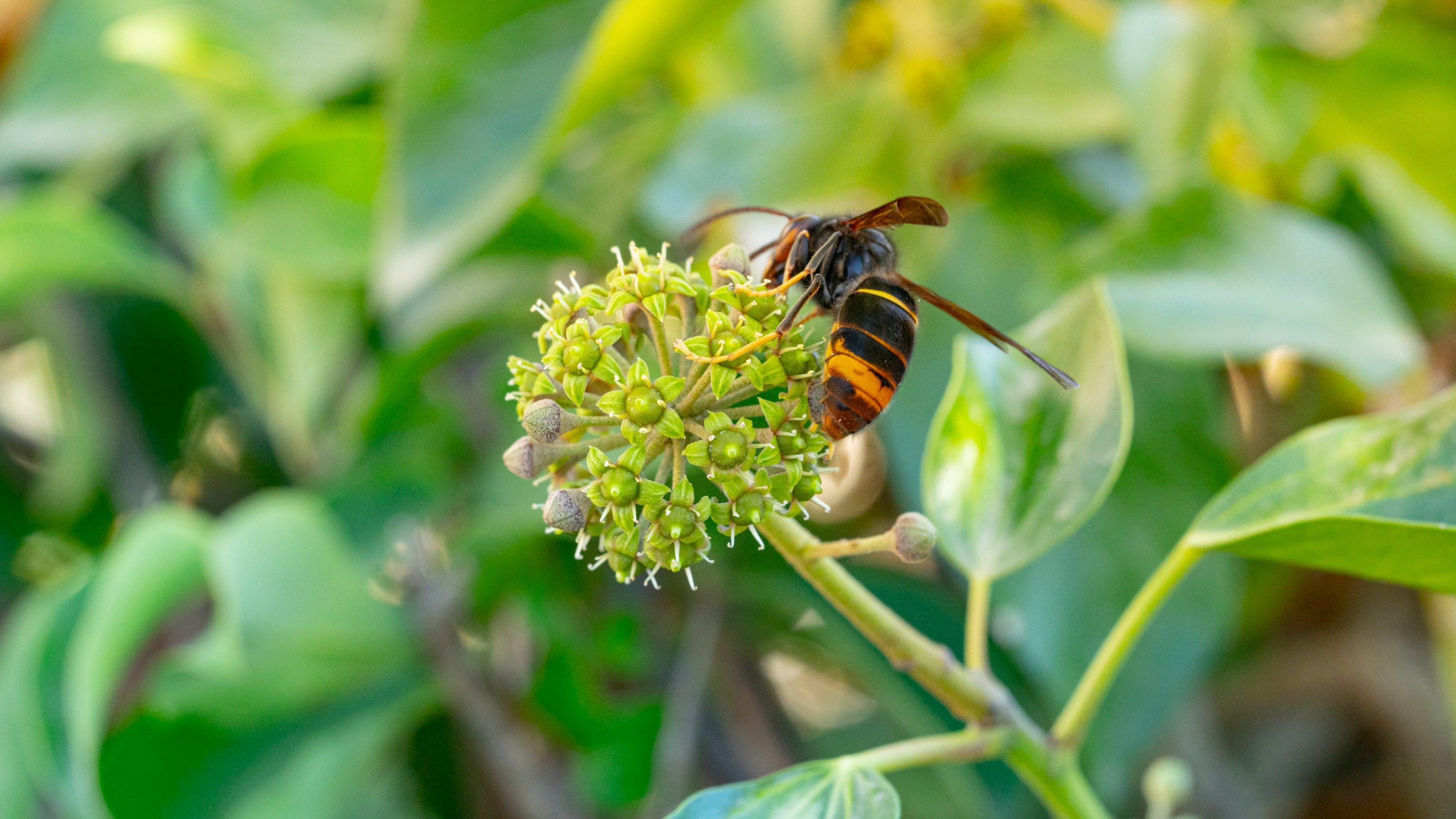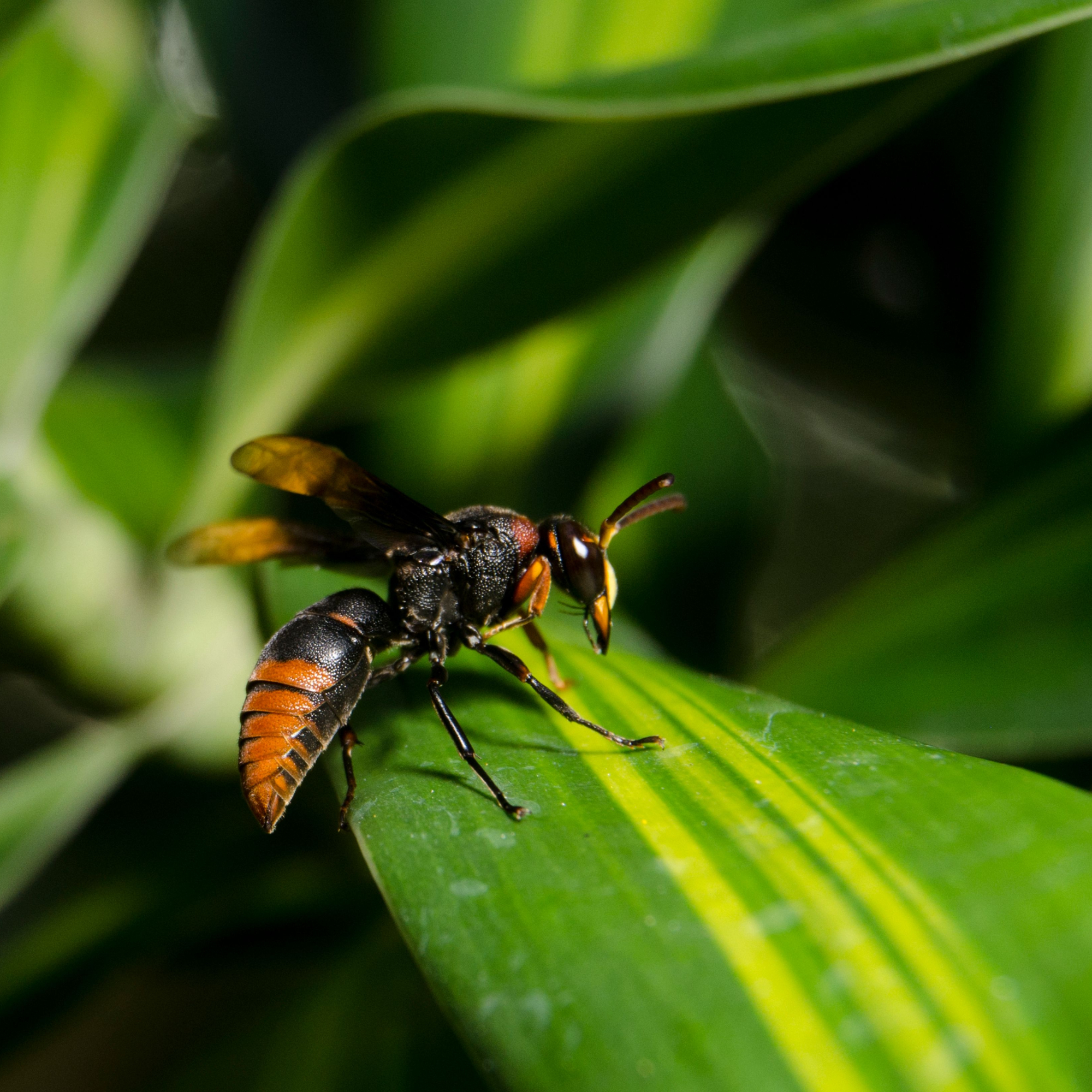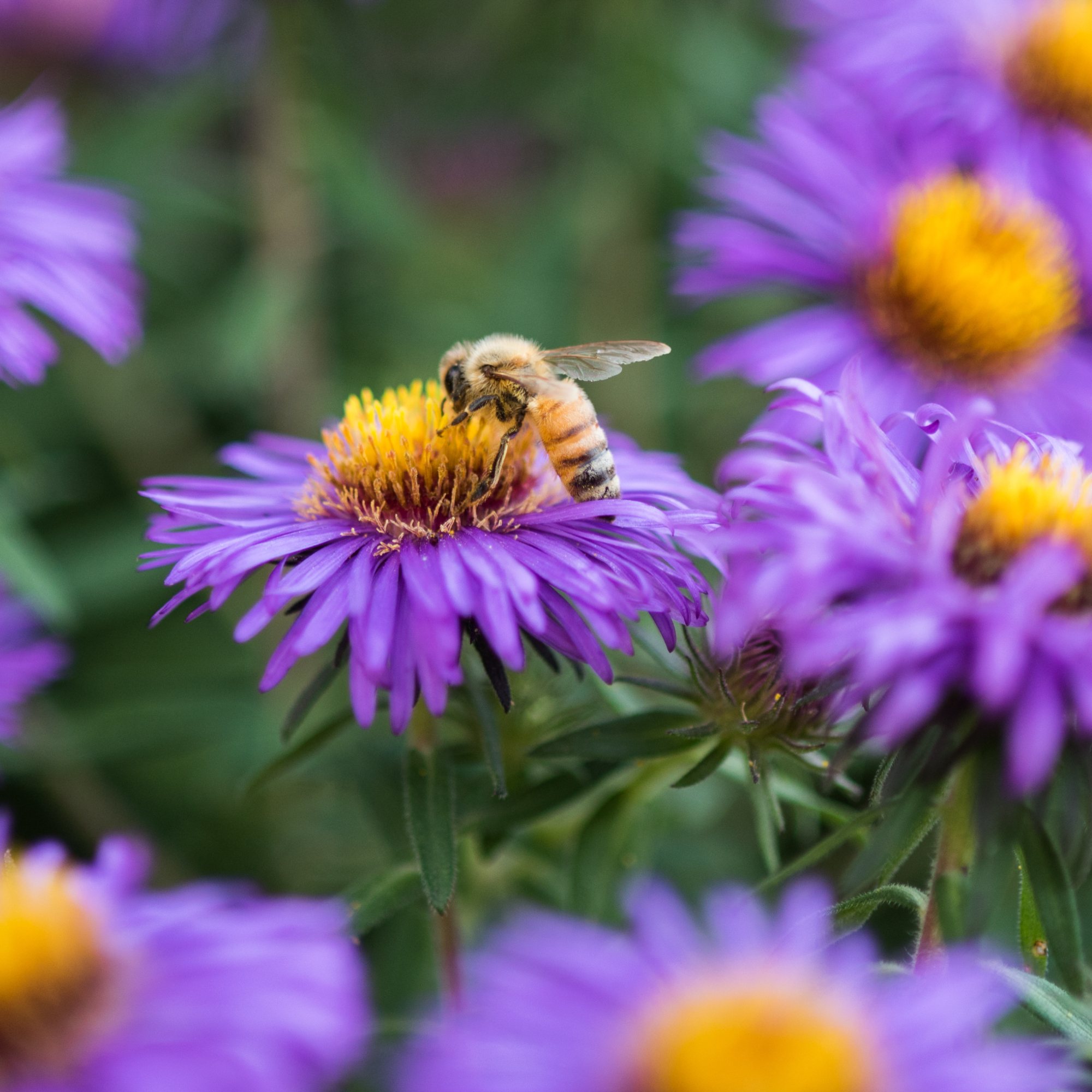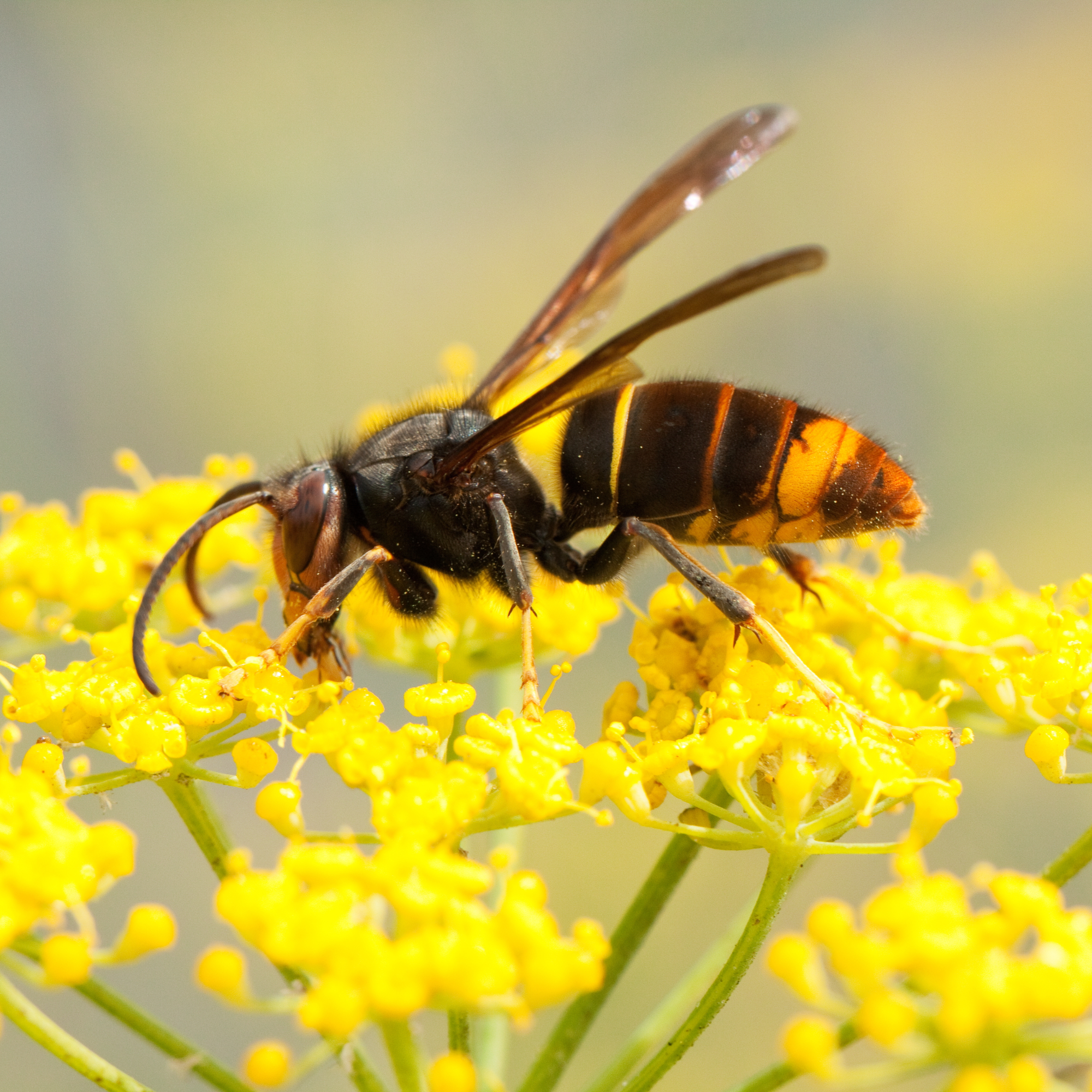Are Asian hornets aggressive? Experts reveal how to identify the invasive species and report sightings
Beekeepers, pay extra attention


Following an increase in Asian hornets in the UK after dozens of nests were found in Kent, the government is advising people to remain vigilant of them ahead of the summer season and report any sightings.
As a result of the influx of Asian hornets coming to light, you might be left wondering if this invasive species is aggressive and the risks they could pose to humans and other species alike. So, we've turned to the experts to explain why exactly we ought to be wary of Asian hornets, and what to do if you spot one.
Suppose you've invested much time into cultivating the best bee garden ideas over the years. In that case, we suggest paying extra attention to the following advice – because this problem species could spell issues for the already at-risk critters.
Are Asian hornets aggressive?
'The Asian hornet is smaller than our native hornet and poses no greater risk to human health than our native wasps and hornets.' begins Defra's chief plant and bee health officer, Nicola Spence.
'Generally, Asian hornets aren't aggressive and do not attack humans and animals unless threatened or provoked in some way,' adds Mihail Velev, pest control technician at Fantastic Pest Control.
Mihail goes on to explain that in the case you get stung by an Asian hornet, this could be very painful as their stingers are a lot larger than the average hornet, are filled with neurotoxins, and often sting you repeatedly.
'Although this doesn't typically cause death, if the person they've stung has an allergic reaction to it, in some cases it can have lethal results because of an anaphylactic reaction,' he cautions.

So, while they may pose a notable risk to humans, Nicola notes that Asian hornets can however 'damage honey bee colonies and harm other pollinators'. This is something fellow wildlife garden lovers should be especially wary of. Even more so if you've just recently made a bug hotel to welcome these critters into your outdoor space.
'If you've ever heard people refer to them as "murder hornets", this is not because they attack people very often. This nickname has more to do with the fact that they show aggressive and deadly behaviour towards honeybees and other pollinators. They have been known to be able to attack and destroy entire honeybee hives in only a few hours or even only 90 minutes,' explains Mihail.

'After they've killed all the bees and destroyed the hive, they'll even make sure it can never exist again by eating the bee larvae and pupae inside it and feeding their own offspring,' he continues. This is especially dangerous because if Asian hornets establish their hive in these places, they become a threat to the entire local bee population.
Therefore, it's no wonder that the government is urging people to be extra vigilant of Asian hornet sightings – especially because 2023 alone saw a record number of Asian hornets found in the UK.
How to identify Asian hornets
'Asian hornets are distinctive and can be identified by their very dark body, wide orange stripe on the fourth abdomen section and yellow leg ends. They are much larger in size than our native hornets,' explains Nicola.
Asian hornets are usually around five and a half to five centimetres long, however, their queens can exceed this length. 'Most importantly, because they typically live underground in tunnels, their nests will usually be difficult to locate, but they're usually near tree roots,' adds Mihail.

What to do if you spot one
If you suspect that you've spotted an Asian hornet, you must report it as soon as you can and not attempt to interact or deal with it yourself.
You can report this using the iPhone and Android app 'Asian Hornet Watch' or by using this online report form. Alternatively, you can email alertnonnative@ceh.ac.uk. It is also recommended to include a photograph if you can safely obtain one.
'By ensuring we are alerted to possible sightings as early as possible, the public can help us take swift and effective action to stamp out the threat posed by Asian hornets,' concludes Nicola.
'Please continue to be vigilant for any Asian hornets and if you think you’ve spotted one, report your sighting through the Asian hornet app or online.'
Get the Ideal Home Newsletter
Sign up to our newsletter for style and decor inspiration, house makeovers, project advice and more.

Jullia was Ideal Home’s Junior Writer from 2022-2024 and the Ideal Home Certified Expert in Training on Vacuums having spent over 60 hours testing different models. She’s always loved all things homes and interiors, graduating with a bachelor’s degree in Architectural Studies from the University of Nottingham where her love for writing blossomed following her internship at ArchDaily. Now focused on home tech and cleaning, Jullia works on writing features and explainers to help people make the most of their home appliance investments, putting the newest launches through their paces. When she isn’t writing, she loves exploring the city, coffee shop hopping, and losing hours to a cosy game or book.
-
 Zoe Ball's colourful kitchen island shows how easy it is to create a characterful cooking space - here's how she did it
Zoe Ball's colourful kitchen island shows how easy it is to create a characterful cooking space - here's how she did itBeing brave with colour will reap huge rewards
By Holly Cockburn
-
 7 plants that will make your patio smell gorgeous - the top fragrant picks experts recommend potting up
7 plants that will make your patio smell gorgeous - the top fragrant picks experts recommend potting upFrom aromatic flowers to fragrant herbs
By Kayleigh Dray
-
 I won't gatekeep - Magimix's new small kitchen-friendly mini chopper is my secret to delicious lazy dinners
I won't gatekeep - Magimix's new small kitchen-friendly mini chopper is my secret to delicious lazy dinnersMy homemade pesto pasta has never been better
By Holly Cockburn